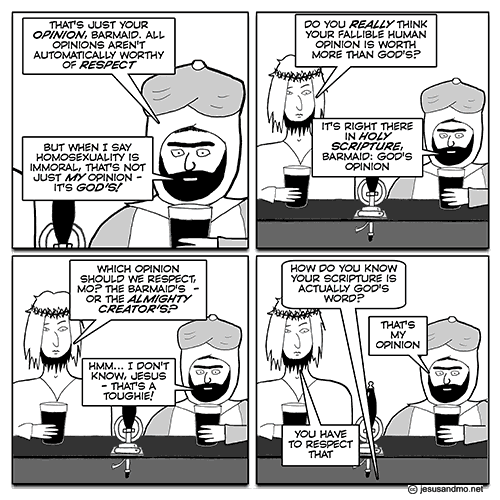Here’s a shining example of the kind of thing that is sundering so many friendships and alliances: Aaron Kappel on why women and feminists are so horrible.
The piece starts with an unpleasant fantasy about peeling off a strip of skin, unpleasant enough that I skipped over most of it.
The fluidity of gender is complicated; it is messy and it is beautiful. If I’ve learned anything, it’s that I cannot say with any real sense of authenticity or certainty that I know who or what I am–not fully. I lived as a cis heterosexual man for the first 22 years of my life. I then lived as a cis homosexual man for another decade. Today I am something much closer to myself.
I identify as non-binary because at this point in my life–as I deconstruct obstructions that have confined my existence thus far–I understand that there is a deeper truth found within that I have yet to unearth.
The important thing is, Kappel is a special snowflake.
Now that I have a deeper understanding of who I am, now that I know I am not male, the rejection of my humanity is visible all around me. Just as my mother did, there are those who insist that because of my body, I cannot be who I am.
And sometimes, those doing the insisting, the hurting, are self-described feminists.
Of course. It’s always the feminists. It’s never the big looming drunk guys in bars, it’s always the feminists. Let’s all sit down and get cozy and have yet another session of Bash the Feminists.
One Friday night earlier this fall, my partner and I were having drinks at a dark, dank dive bar in center city Philadelphia with his brother’s fiancée (let’s call her Kelly) and her best friend. I was ambivalent going into the planned happy hour–something we do together every few months–in part because it would be the first time I’ve seen them since I’ve been living as non-binary. Happy hour quickly turned into many hours.
Several pitchers in, I returned from the restroom to find that pronouns were being discussed. My partner had just finished telling Kelly that because I am non-binary, I use gender-neutral pronouns, they/them.
Notice something missing? There’s nothing about Kelly’s feminism. There’s nothing to suggest that she is a feminist, apart from the fact that this story follows Kappel’s mention of feminists.
As I sat down, Kelly decided to bombard me with questions about, and alternatives to, how I identify. At one point she, in all seriousness, suggested using “it” as a pronoun instead.
“No,” I stated sternly.
“I’m only asking to understand,” she replied.
“I am not an it!”
Maybe that is why my body shook and my breath lost its rhythm; my eyes flooded, then evaporated, and my skin lost all its moisture.
It’s sad about Kappel’s eyes evaporating. The part about the skin though – couldn’t that be from the many hours in the dark dank dive bar and the several pitchers of beer? Alcohol is dehydrating.
Maybe that is why I had to use one hand to help lift the other hand, and why I fumbled erratically, wrapping my ankles around the legs of the chair so as not to fall off and into the void below–for the entire room fell away. The floor disappeared and there was nothing but an eternal darkness.
All because of feminism! Or, you know, because of being drunk.
Where does feminism fit into my experience? Specifically, where do I fit into feminism? I know that for feminism to be successful and beneficial, it must be intersectional–yet even in alleged intersectional feminism, there is exclusion, erasure, or outright dismissal of people like myself.
Bullshit. Feminism is about women’s rights, so no, it should not “center” people who lived as men for 32 years. Feminism should not be so “intersectional” that it stops being about women’s rights.
I told Kelly that I was not her encyclopedia, that her using me to gain understanding was a problem. She continued to question my humanity, even after I became visibly and audibly upset, while her friend said nothing and permitted the abuse to continue.
I muttered, “This isn’t about you,” and Kelly began crying. In a matter of seconds, she centered herself as the victim.
As I sat between the two women, I clung to my chair, grasping for the support an inanimate object is incapable of providing. Then I rose and walked out into the night, sobbing, panting, shaking my way home.
In other words Kappel had a massive tantrum, and now uses the tantrum as evidence of the harm that Kelly did. That too is bullshit. Kelly may have been very obnoxious or may not have, but Kappel’s panting and shaking – not to mention the evaporated eyes – does not count as evidence that she was.
This is merely one example of what happens when feminists reject intersectionality. That rejection is violence, and people like myself are the recipients of that violence.
When feminists speak about feminism and address their audience by saying he or she as a means to be inclusive, I am excluded. When they speak to or about other feminists and use only female-specific pronouns and descriptors, I am excluded. When women call for equity and inclusion but exclude those who reject the gender binary, we feel the same oppression these women are purportedly contesting. If intersectional feminism does not include trans people of all stripes, then it is not intersectional.
Blah blah blah blah – feminism has to be about me me me me or it is not intersectional. Feminists have to stop talking about women, dammit!
The narcissism and self-absorption and spite are obvious and disgusting. Kappel goes on for many more paragraphs explaining why feminism should be all about Kappel and how very special Kappel is. It’s as painful to read as tearing off a strip of skin would be.




